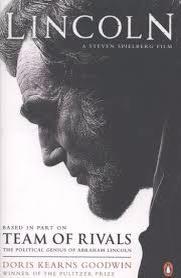Going to university back in 1976 opened a new world to me. Never really having the confidence to read widely or expand my interests beyond finding intellectual endorsement for my evangelical faith, I was compelled to read books I had not previously encountered.
My German teacher – probably deeply irritated by me, my seriousness and my questions – had got me to read Dante's Inferno and, with a group of German Assistent/innen, to see a Bertolt Brecht play in Manchester. It was The Resistable Rise of Arturo Ui, a powerful parody of the rise of Hitler, and a play I would return to many times. But, that was probably as far as I went.
In my first year in Bradford, really wanting to concentrate on becoming a translator, I opted for a course on European Literature and Thought. This opened me up to writers such as Sigmund Freud, Guiseppe di Lampedusa, Arthur Koestler, Albert Camus, Jean-Paul Sartre, Günther Grass, and many others. The text that gripped me, however, was The Communist Manifesto of Karl Marx and Friedrich Engels.
My knowledge of history was neither deep nor wide. It still isn't, but I am trying…
It did seem striking, though, that 1848 was a pivotal year in European and, therefore, world history. Among many other things – such as revolutions in parts of Europe (and the Enlightenment bedding in following more than half a century after the French Revolution) – various types of slavery were being both challenged and protected… and both on grounds of economics, property and a perverse anthropology.
Marx and Engels berated the commodification of human beings in the industrialising worlds of mass-production, challenging the right of a capitalist elite to protect its own interests by enslaving the proletariat – those who actually made the stuff despite being alienated from it – in meaningless work from which they derived no profit and yet which imprisoned them in soulless and degrading labour.

At the same time Abraham Lincoln (yes, I am reading Doris Kearns Goodwin's book Lincoln) made his first public political move against slavery in the United States, recognising that thus far “he had not delivered a single speech on the issue of slavery or initiated anything to promote the issue” (p.127). He subsequently drafted a proposal for the gradual emancipation of slaves in Washington DC. He eventually lost, remarking with pragmatic political realism: “Finding that I was abandoned by my former backers and having little personal influence, I dropped the matter knowing it was useless to prosecute the business at that time.” (P.129)
Slavery takes many forms and is always conditioned by the particular cultural, political and economic shape of particular societies. In the US it was the issue that was dividing the country and would lead to the bloodshed of the Civil War only a few years later. Yet, most proponents of slavery there argued in favour of their proprietorial economic rights to own and trade people as commodities. In Europe it looked different. But, in both contexts the economics and politics were undergirded by often unarticulated anthropologies – maybe theological anthropologies – that made assumptions about the nature of human beings whilst avoiding facing the consequences of those assumptions.
Now, this is not to read back into past times the wise hindsight of the present. It is, however, to recognise that if such battles were being fought on different continents – and I haven't space to get on to the British Empire – over the nature of what is means to be human, then progress made in some quarters has not diminished the continuing importance of the fundamental question even today.
The 'rights' culture we now inhabit is both positive and negative. It poses some of the right questions whilst running into the sand when it comes to taking seriously the consistency of implications – for example, in establishing which rights have priority when the rights of different people clash directly. It is a lawyer's dream. Yet, underlying this is the nagging question of why we think that people matter in the first place. If the ethical tenet of “you can't get an 'ought' from an 'is' holds water, then the mere fact of human existence cannot of itself demand any moral imperative. That is to say, the mere fact of human existence cannot of itself – clear of un-argued for assumptions about why – demand a particular crediting of human life with inherent value or significance. We simply import other assumptions in reaching a conclusion with which we have actually started.
1848 was a pivotal year. There must be a book somewhere that looks at that year synchronously across the globe, recognising the contingencies of political, economic and anthropological (and theological) thought and argument. If not, someone should write one. (If I had Internet access while writing this, I would google it and look cleverer than I am. But, I don't!)
What is clear, however, is that the same questions that racked people like Marx, Engels and Lincoln – although they could not be thought to share the same political ground – have not gone away. If you think they have, then ask a trafficked East European teenager who finds herself in the lands of the free traded for sex, money and power.

